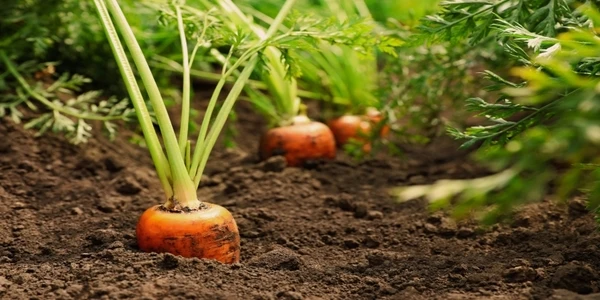The Grounds Guys provide guidance on choosing the best organic fertilizer for your garden:
|
Gardening is a multifaceted hobby that provides devotees with beauty, physical activity, family time, and a sense of pride that comes with growing your own produce. And although the process is not complicated; to flourish plants need oxygen, carbon dioxide, water, sunlight, and healthy soil. Those first four elements are easy enough but getting the soil right and selecting the best organic fertilizer for your vegetable garden can be tricky.

Healthy soil contains a multitude of elements from macronutrients to microbes to humus, and the healthiest soil is organic soil. Healthy soil can be maintained with organic supplements such as organic fertilizer, not man-made chemicals. Mother Nature is pretty resilient and very adaptable when it comes to the growing process. You don’t have to be perfect to achieve good results, you just have to plant in the right kind of soil. So if you’re thinking of starting your own vegetable garden let’s go over how to choose an organic fertilizer that’s both beneficial for your garden and safe for your family.
Related Topic: How to Choose the Best Location for Your Vegetable Garden
Nutrients
Many components go into healthy soil, including nutrients like, nitrogen, phosphorus, and potassium, which together are often referred to as NPK. So what does each nutrient do exactly?
- Nitrogen promotes foliage growth, which is why specialized lawn fertilizer tends to be higher in nitrogen than in the other two nutrients.
- Phosphorus is for healthy roots, blooming, and fruiting. Common vegetables such as tomatoes and root crops thrive with a balanced fertilizer, like a 5-10-10. We’ll get into the ratios more in a moment.
- Potassium helps plants stay healthy and vigorous overall, with healthy stems and flowering as particular benefits of potassium.
How do you know if your garden soil is healthy? You can purchase a soil test kit at your local home improvement or garden center, or with you can check to if your local municipality offer such service. If so, check their web site or call to get specific details on collection method and requirements.
You can also roll the dice to see if you have any luck growing in your current soil, but this approach could be somewhat discouraging if things don’t work out and the process will take longer. However, if all goes well and you see an abundant production of vegetables, then just keep doing what you’re doing. But if your first harvest is sparse, a soil test can help you identify some of the things your soil may be lacking.
Nutrient Ratio
The nutrient ratio refers to the amount of each nutrient, or NPK for nitrogen, phosphorus, and potassium. A standard fertilizer might say 10-10-10 on the label, meaning 10% of each nutrient. Different plants can benefit from different ratios, however. Organic lawn fertilizer may be 10-2-5, for example.
When you compare organic fertilizer with synthetic fertilizer, you may notice the synthetic fertilizer has a much higher concentration of specific nutrients, over 20 for nitrogen, for example, for lawn fertilizer. This can be misleading, as synthetic nitrogen is water soluble and will likely leach away during watering and rain. Yes, you’ve applied more nitrogen to your plants with a synthetic fertilizer, but is that level remain so the plants can use it, or will it be washed away? In contrast, organic fertilizers tend to be better at maintaining and retaining its original composition because the nutrients are released more slowly.
It’s also important to note that excess nitrogen will often make a plant produce more foliage than flowers, so fertilizer made specifically for vegetable plants will breakdown to a 5-10-10 ratio, as mentioned above.
Vegetables vary in terms of what they need from each nutrient, so it’s not very practical to try and apply a specific ratio for each type of plant. If you do connect with a local service for your soil test, ask them for some advice regarding the best overall nutrient ratio for your vegetable garden. You can also use a more general-purpose fertilizer like a 5-10-10 or 5-5-5 to start. As mentioned before, the “pretty good” approach usually works fine.
Organic Fertilizer Types
There are several different types of organic fertilizer available, with a combination of different nutrient ratios. Plant-based fertilizers such as cottonseed meal has been proven to work well, as do many of the animal-based products such as composted manure. Manure must be composted, or broken down over time, so the nutrients are released slowly. This will minimize the risk of burning the plants with a shock of too much nitrogen. Mineral-based fertilizers such as rock dust and gypsum can improve soil structure, breaking up heavy soil, and also provide micronutrients such as calcium. A soil test will tell you exactly which minerals are lacking and need to be added to achieve optimal soil health.
Have Questions?
Growing your own vegetables is a healthy and very rewarding hobby. It’s also something the whole family can get involved in. Once you choose a good location, get the soil right, the rest is easy. And while you’re working on growing your own vegetables, call The Grounds Guys to help you with everything else around your yard; landscaping, lawn service, or anything else you need to get your yard looking its absolute best!